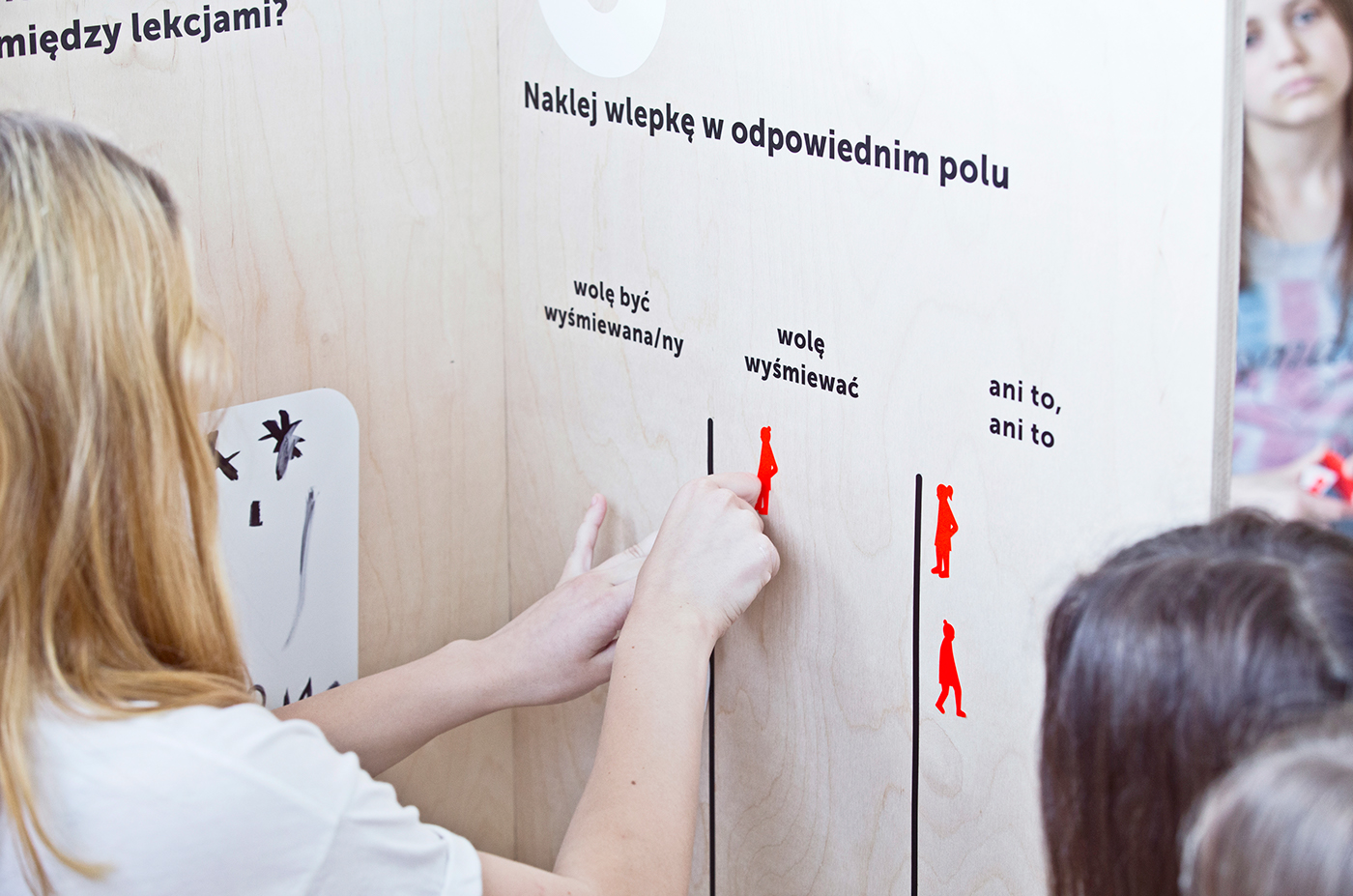
Stick the sticker in the appropriate box:
I prefer to be derided · prefer to deride · neither this not that

The main difficulty in talking about discrimination and verbal aggression is their apparent invisibility — we have become immune to the hate speech, and words began to appear in the everyday language which until recently we were ashamed to use in public. Consequently we stopped responding and did not notice when this kind of communication was taken over by the youngest. Meanwhile, the boundary between verbal and physical violence is very small, and sometimes to offend someone it is like to hit him/her.
My graduation project was designed to show the scale of verbal violence and discrimination among children. I decided to carry out it locally — in the form of a spacial survey in one of the schools, which was completed in total by 218 students aged 9 to 12. Its aim was to show how common verbal violence is and make people working in school discern the importance of the problem and respond to it. I wanted that through properly asked questions and specific tools that children would use to fill in the quiz provoke them to sincerely (and anonymously) talk about their problems. As a result, students' responses formed the message which was created completely transparently and live.


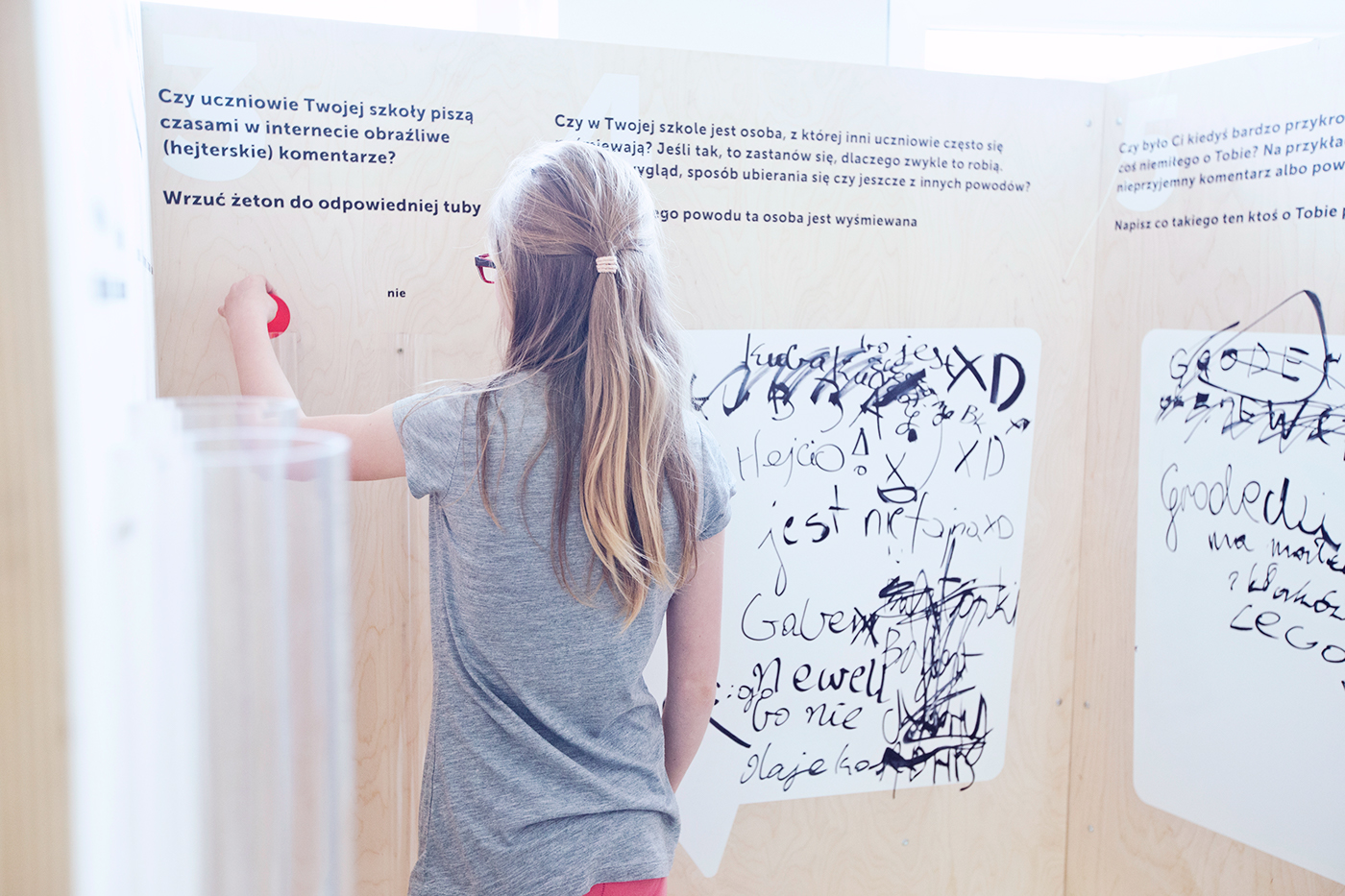
Do students from your school write sometimes offensive comments on the Internet? Put the token into the corresponding tube.
Girl puts the token into the tube with the answer "yes".
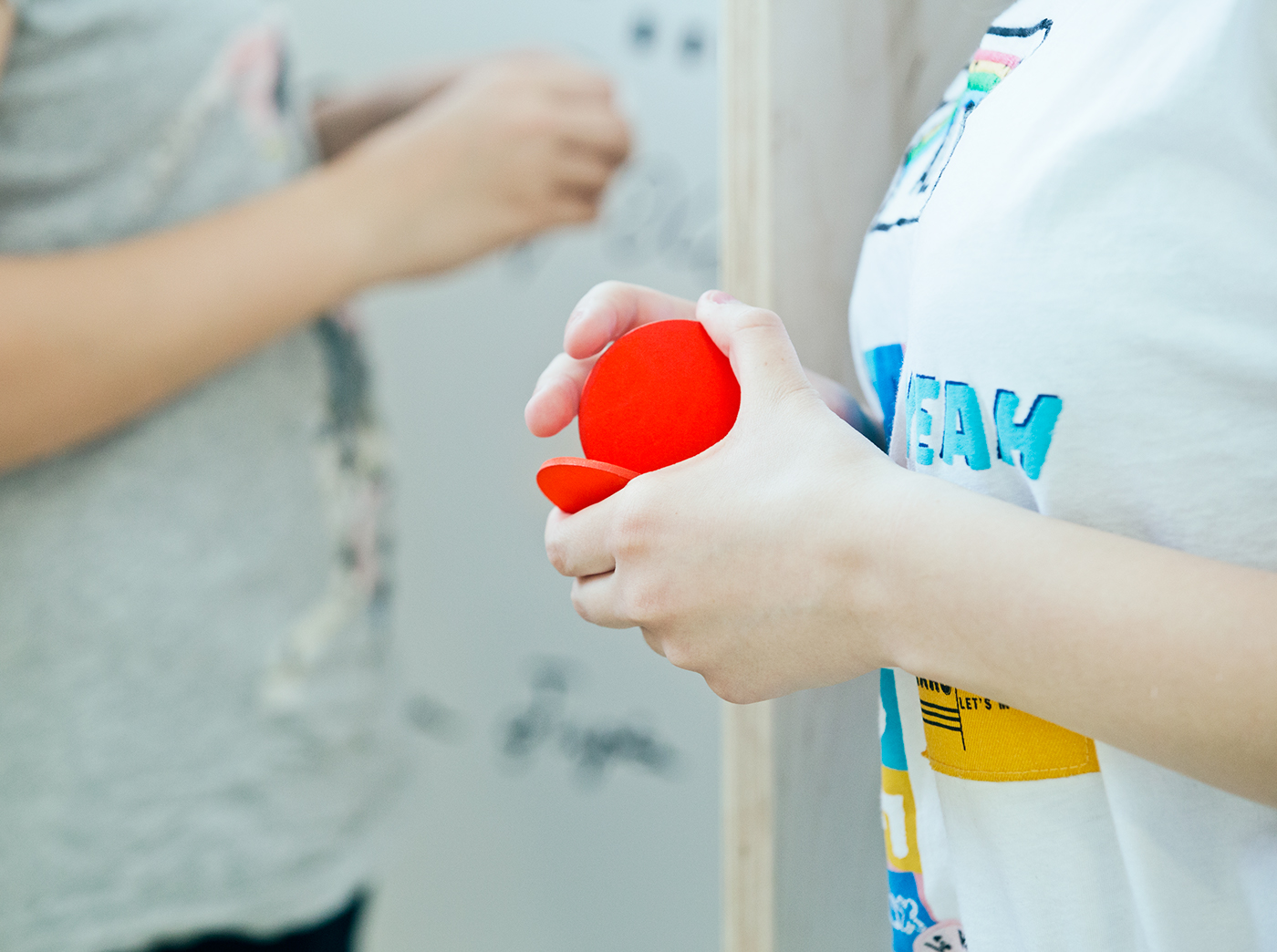
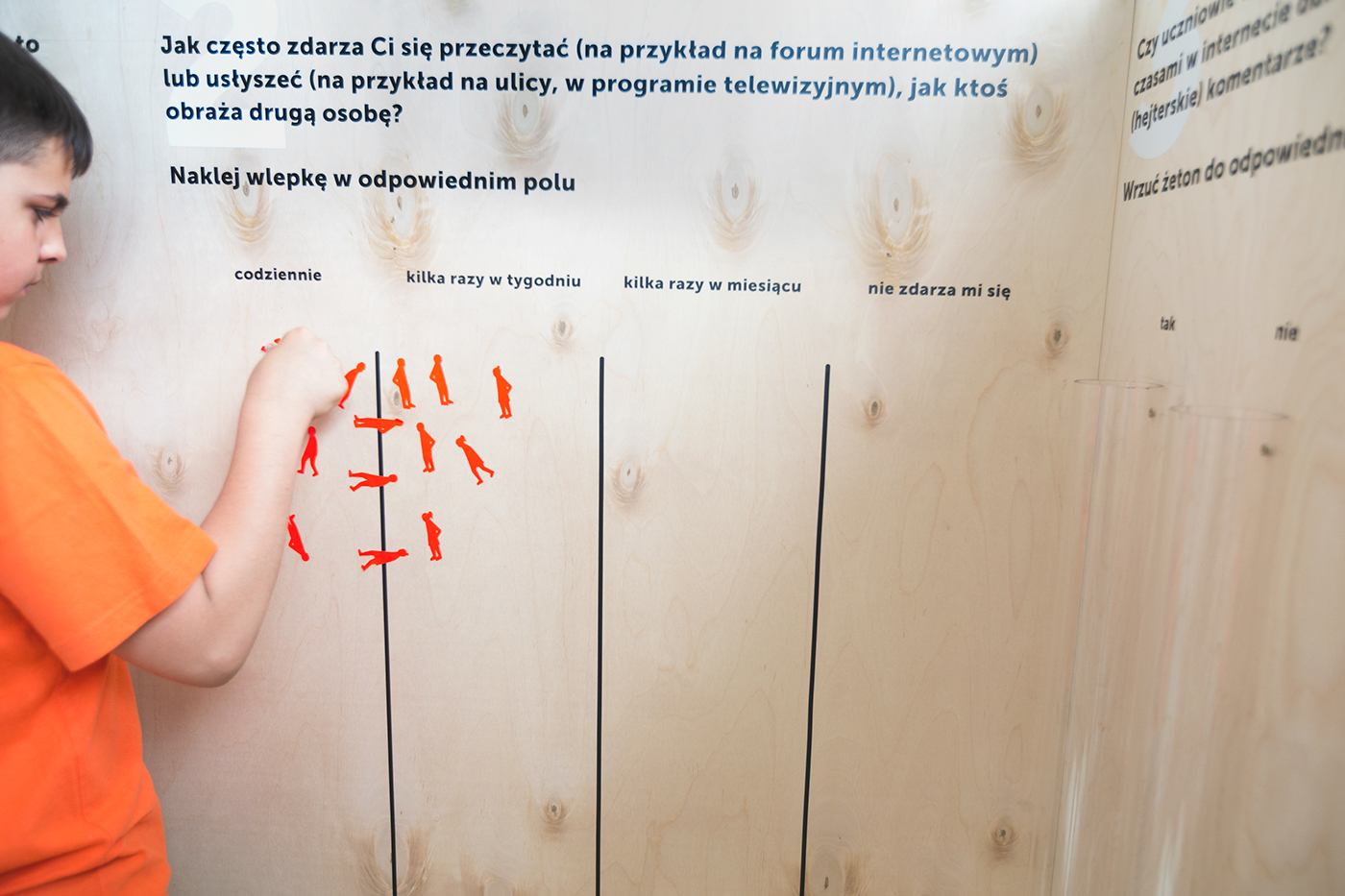
How often do you happen to read (e.g. on the Internet forum) or hear (e.g. on the street, in a television program) that someone offends another person? Stick the sticker in the appropriate box.
A boy stick the sticker in the box with the answer "every day".

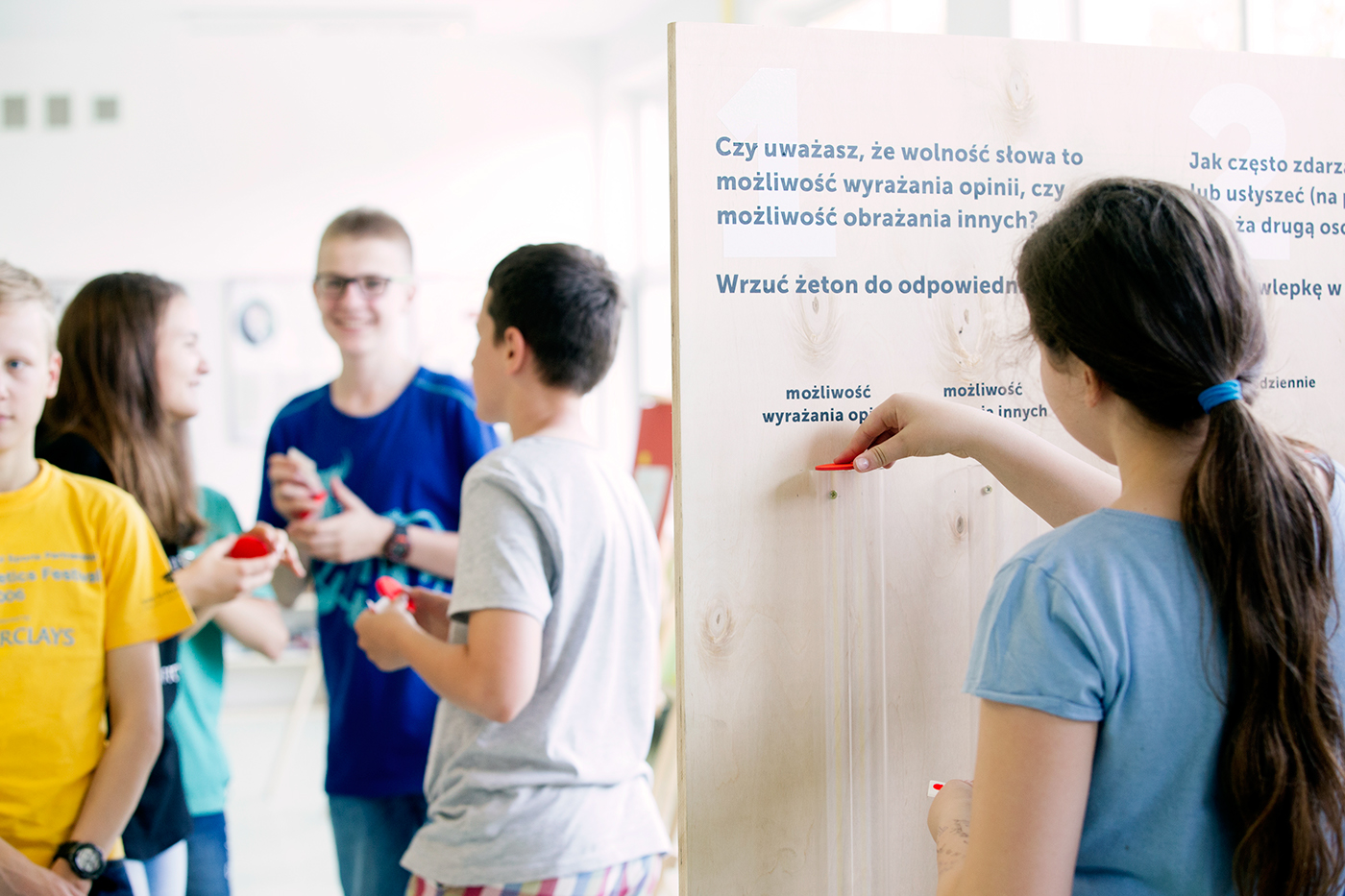
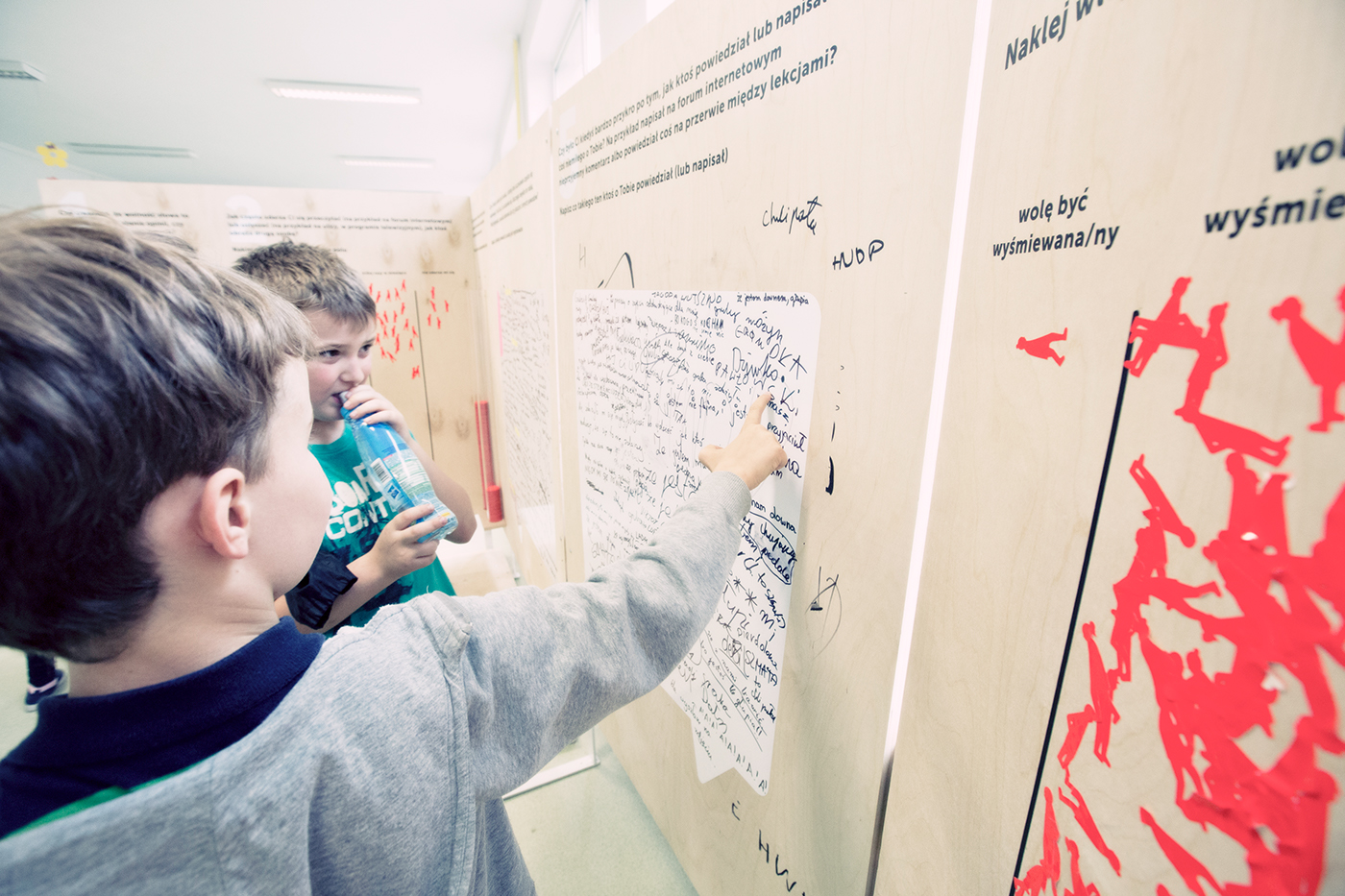
A boy points out to the word "whore". This is another child's answer to the question how she was offended by her peers.

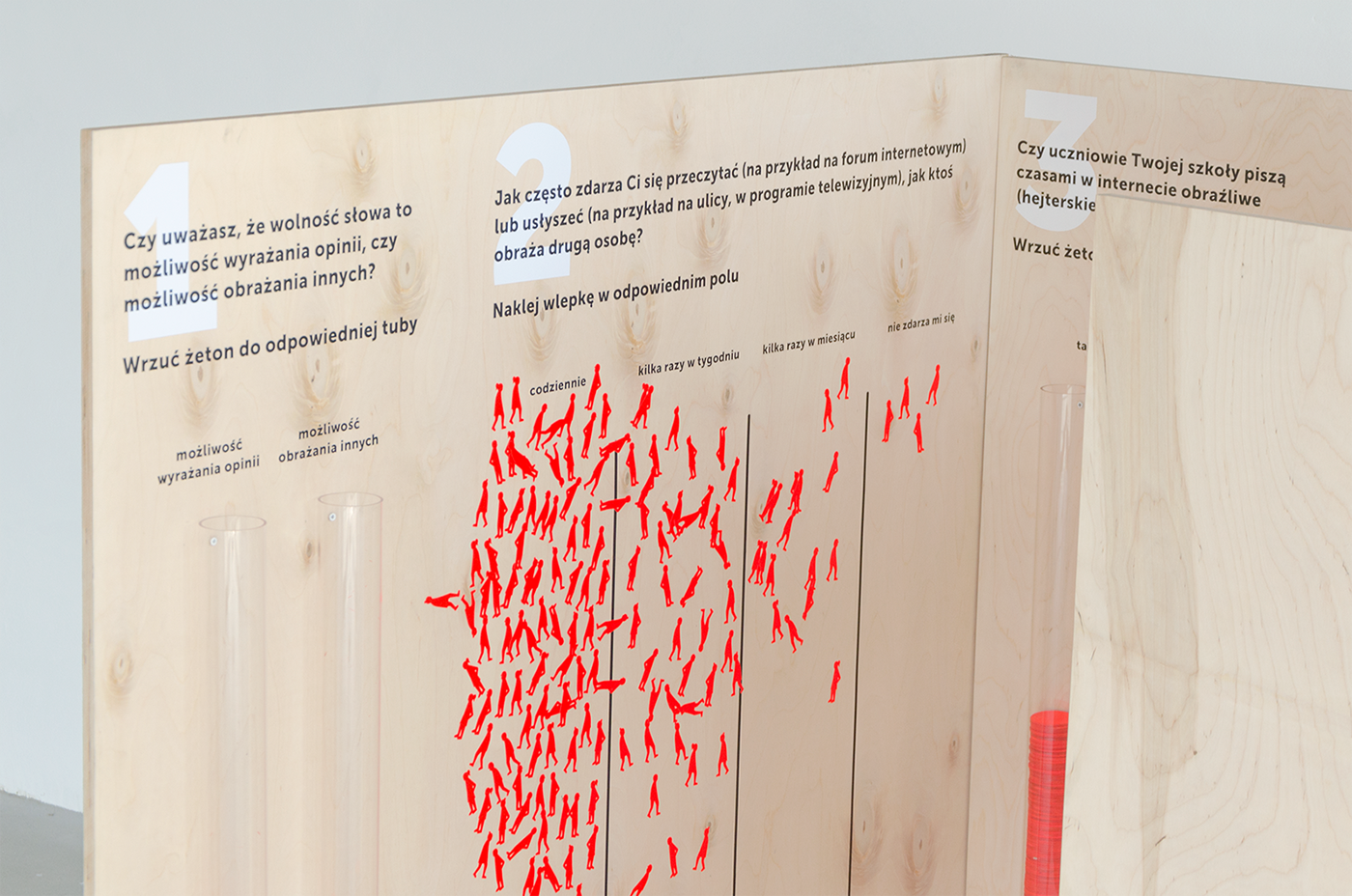

Question 1: Do you think that the freedom of speech means the possibility of expressing opinions or offending other people? Put the token into the corresponding tube.
Answers: possibility of expressing opinions – 143 tokens, possibility of offending other people – 75 tokens.
Question 2: How often do you happen to read (e.g. on the Internet forum) or hear (e.g. on the street, in a television program) that someone offends another person? Stick the sticker in the appropriate box.
Answers: the greatest number of stickers is at the answer "every day".
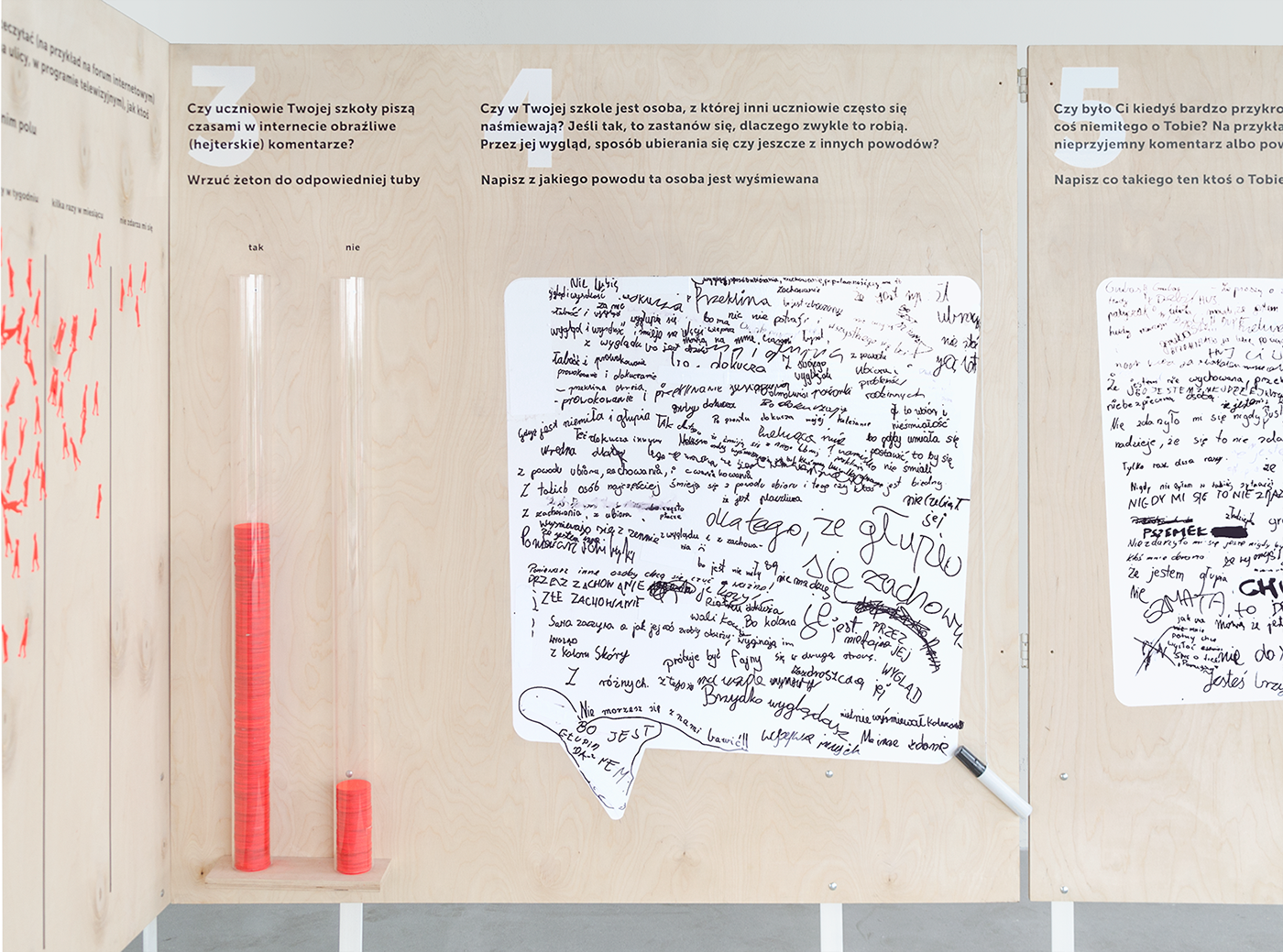
Question 3: Do students from your school write sometimes offensive comments on the Internet? Put the token into the corresponding tube.
Answers: yes – 175 tokens, no – 43 tokens
Question 4: Is there a person in your school who is often laughed at by other students? If yes, then think why they do so. Write why this person is derided.
Some of the children's responses: because of his/her appearance, because of the way he/she is dressed, because of the colour of the skin, because he/she has speech impediment, because he/she is poor
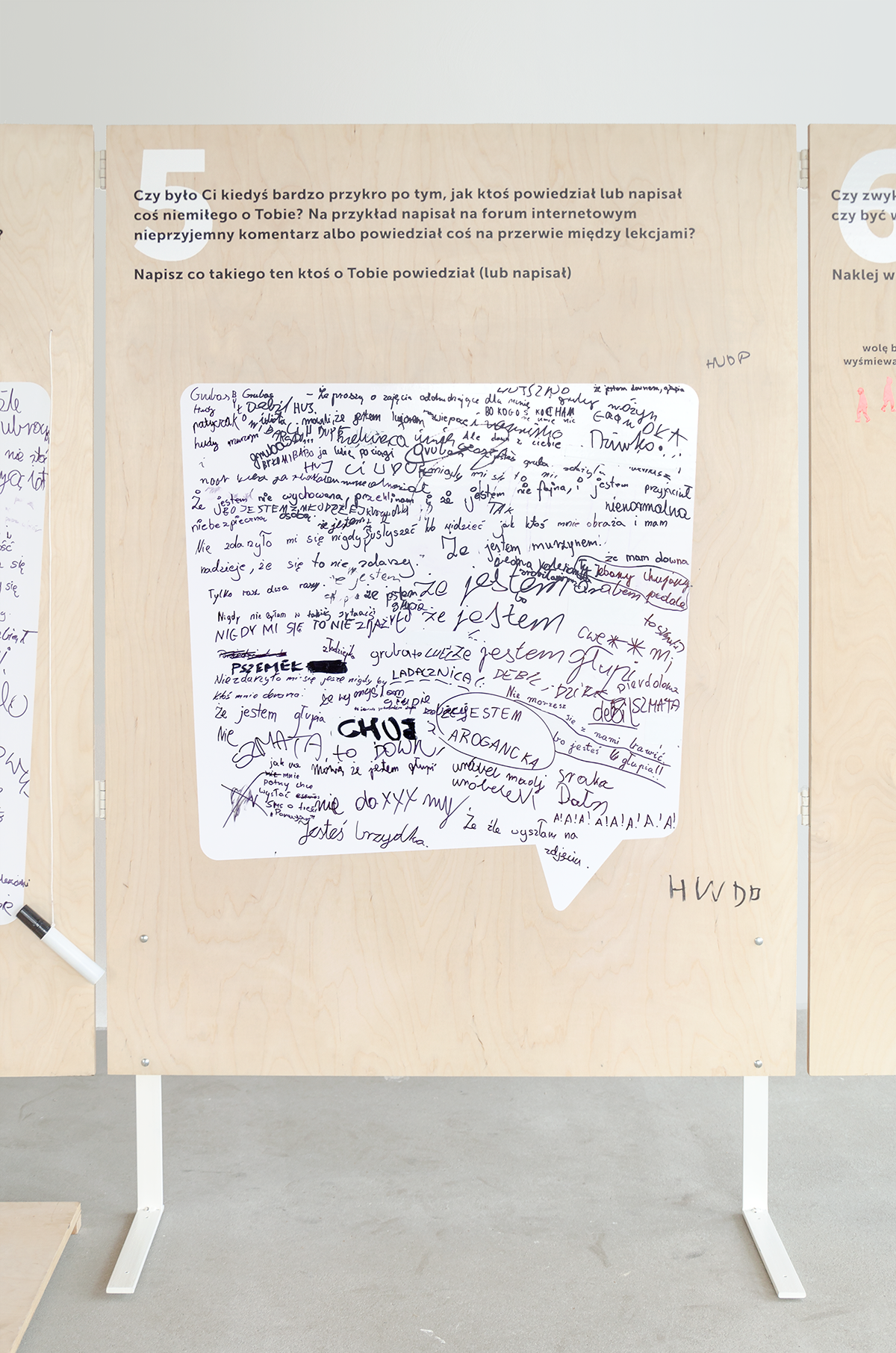
Question 5: Did you feel very sorry when someone said or wrote something unpleasant about you? Write what such a person wrote or said about you.
Some of the children's responses: fat man, fucking slut, whore, faggot, dick, fucker, Arab
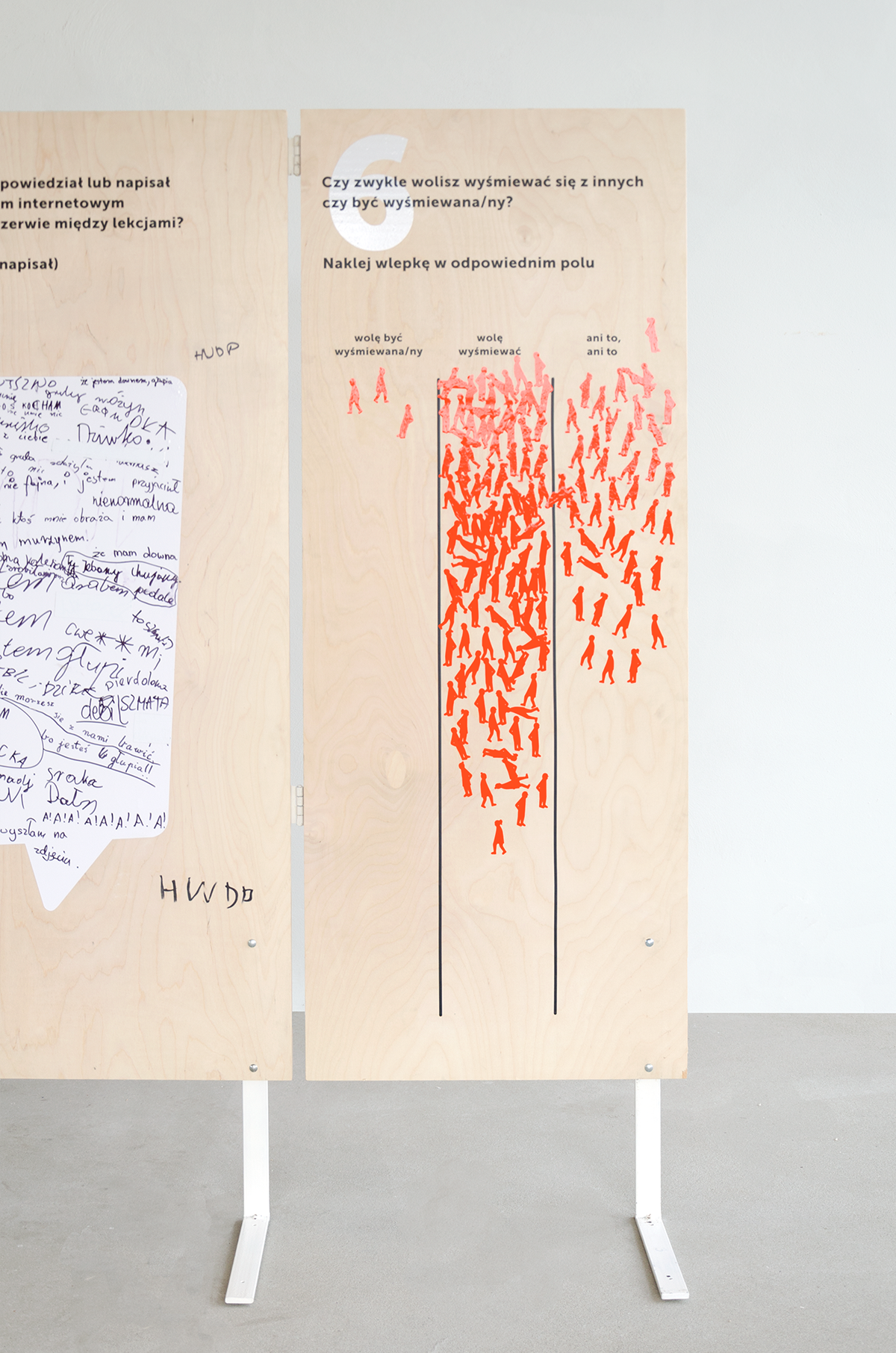
Question 6: Do you usually prefer to deride others or to be derided?
Answers: The greatest number of stickers is at the answer "I prefer to deride".

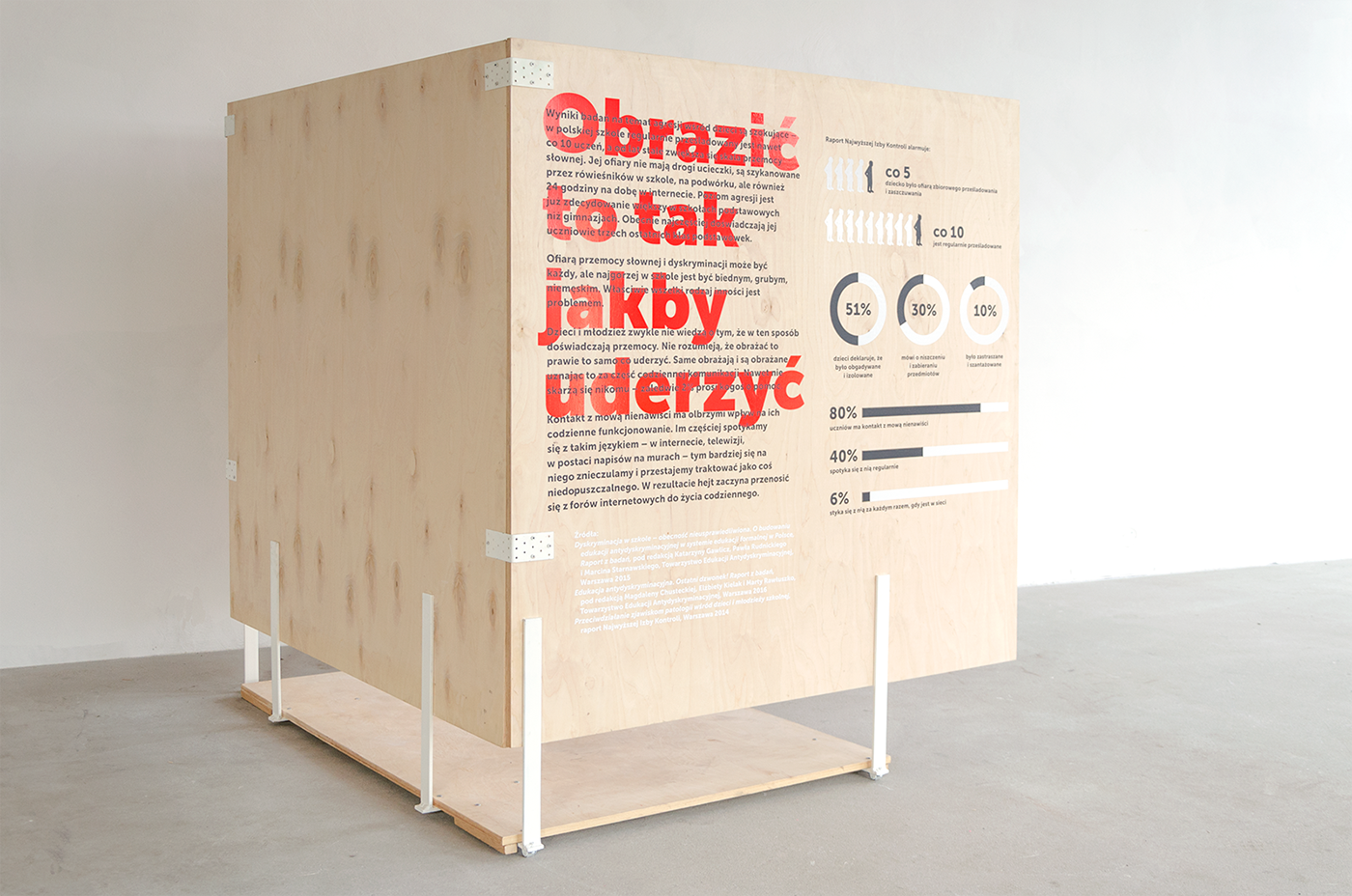
The watchword of my project: To offend it is like to hit.
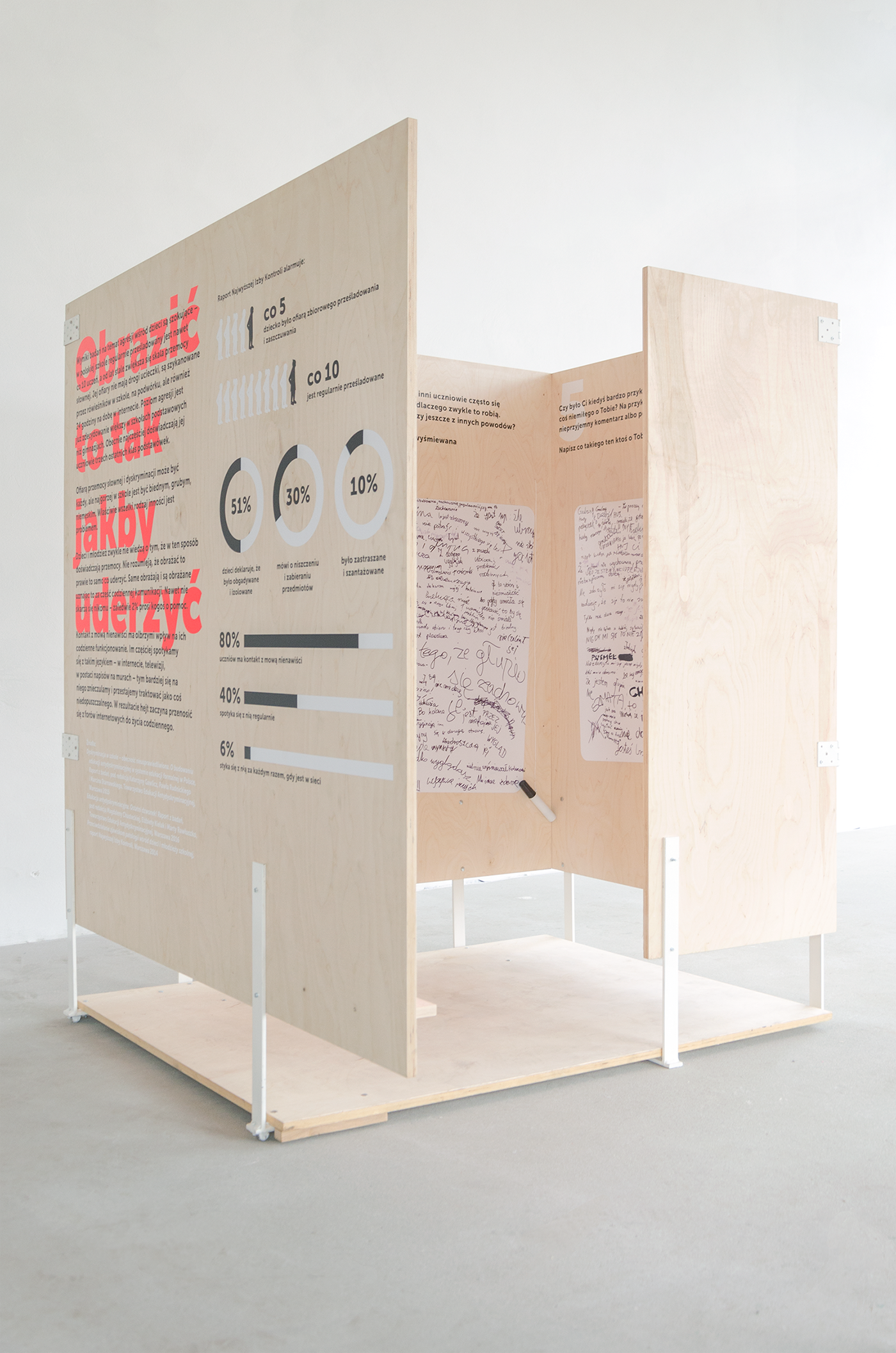
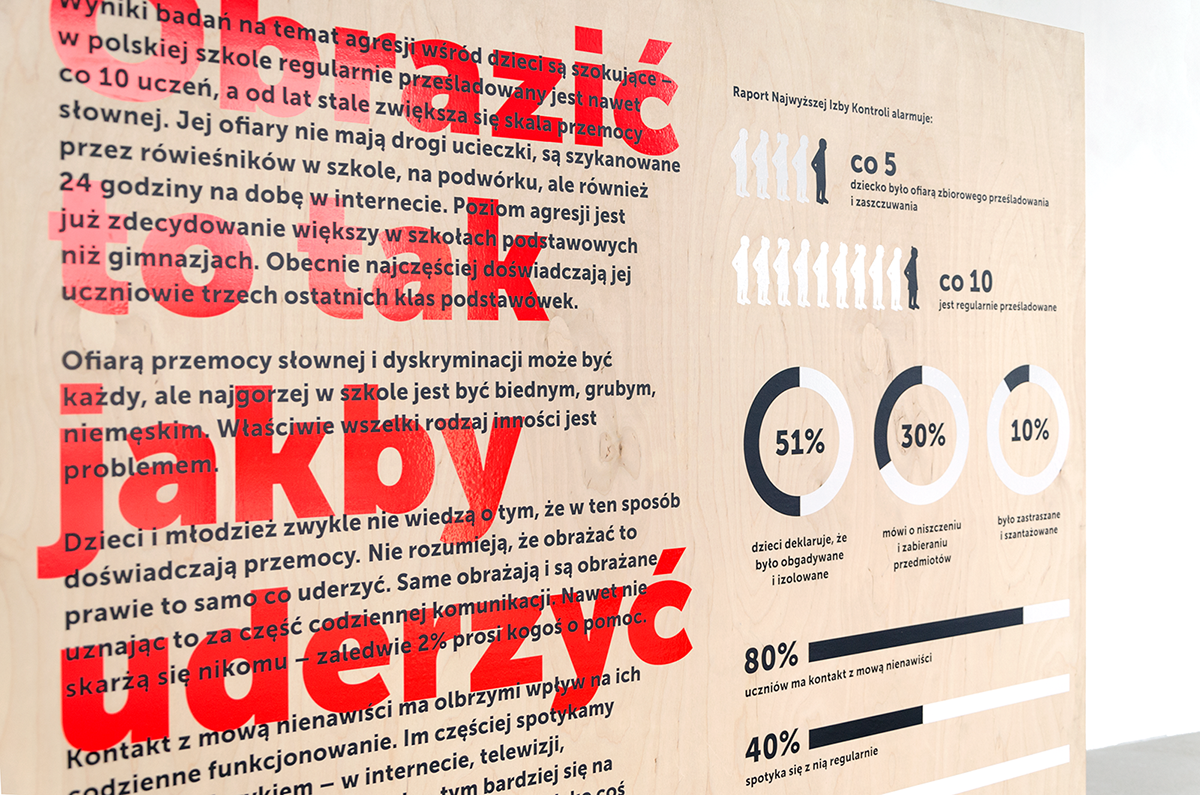
M.A. Project, Academy of Fine Arts, Katowice, 2016
—
Project was selected with the best 18 graphic design graduation projects from Poland, Slovakia, Czech and Hungary in Graduation Projects 2016 competition.
It was also published in 2+3D magazine (No. 61).


